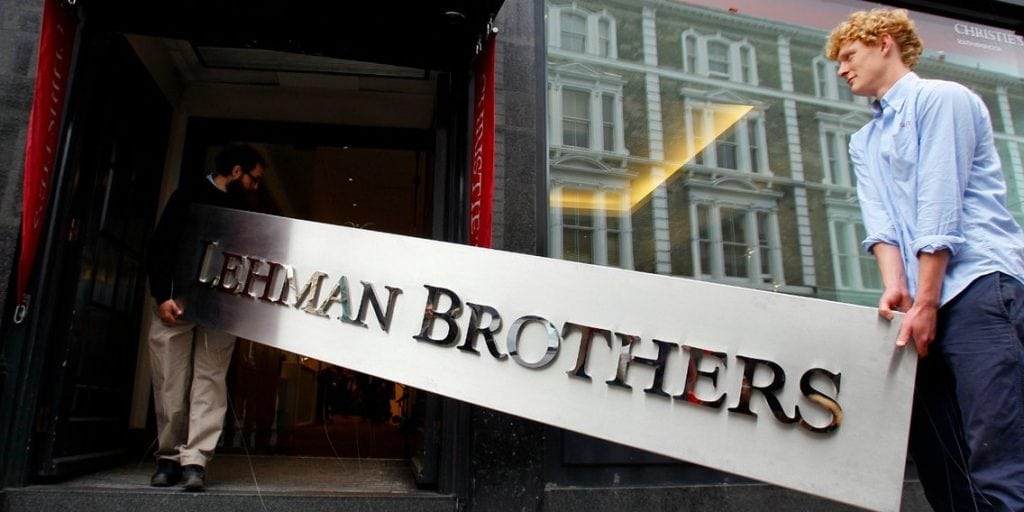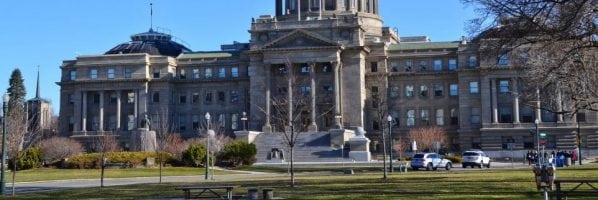Political Turnover, Gaming, and Venture Acceleration – Chicago News

Let’s explore some of the most interesting stories that have emerged from Chicago business schools this week.
Why Economic Crises Trigger Political Turnover in Some Countries but Not Others – Kellogg Insight
New research from Northwestern Kellogg Professor of Managerial Economics and Decisions Nancy Qian explores “how much the people of a country typically trust other people” in an attempt to understand why recessions are catalysts for political turmoil in certain countries, like Greece, and not others, like Norway.
Qian explains that trust plays a key role.
“If I’m a less trusting person, I might say something like, ‘I don’t understand the details of what our leader is doing, but most politicians are bad and they’re lazy, so it is probably his fault. It’s about how likely I am to attribute the economic problems to circumstance or luck versus to the political leadership.”
The researchers found that “economic downturns were less likely to cause political turnover in high-trust countries, like Sweden (63 percent) than in low-trust ones, like Italy (29 percent).”
Qian explains that their findings “have direct implications for how nations approach economic interactions.”
“If we think our trade decisions are going to have economic effects in those nations, we need to also consider the potential political consequences,” Qian says. You can read the rest of the research here.
Keep Them Guessing, Keep Them Gaming – Chicago Booth Blog
In a new Journal of Consumer Research study from Chicago Booth Professor Christopher Hsee and the Chinese University of Hong Kong’s Luxi Shen, it was found that “people repeat a task more for an uncertain incentive than for a certain incentive, even when the uncertain incentive is financially worse.”
According to the Chicago Booth Blog entry, “one reason uncertain incentives motivate behavior is the psychological boost consumers get in moving from the unpleasantness of uncertainty to the satisfaction of certainty resolution.”
Hsee and Shen’s research suggests that efforts to entice consumers to repeat behaviors “may be even more successful if consumers don’t know the amount of the reward in advance.”
You can read the full article here and find “The Fun and Function of Uncertainty: Uncertain Incentives Reinforce Repetition Decisions” here.
Spine Injury Inspires Mark Van den Avont to Create Better Sports Mats – Gies College of Business Blog
Following a high school spine injury that broke the T11 and T12 vertebrae during a backflip dismount, current University of Illinois mechanical engineering sophomore Mark Van den Avont founded HexNest with the goal to create safer and more cost-effective mats.
HexNest is an outgrowth of Gies’ iVenture Accelerator through which he received a $2,500 summer housing stipend and a $10,000 grant to fund “product development, buying competitors’ mats and purchasing equipment to make his mats.”
Van den Avont writes:
“iVenture has been extremely important because I was able to work on HexNest full-time over the summer and devote all my energy to it. It’s great being around other entrepreneurs as well. I’ll be at the iVenture Accelerator at 10 pm on a Tuesday night or early Sunday morning, and I’ll look to my left and right, and everybody’s here.”
You can read more about HexNest and Van den Avont’s journey here.
Columbia Revisits The Great Recession, and More – New York News

Let’s explore some of the most interesting stories that have emerged from New York business schools this week.
Showing Discipline with Kindness, Compassion to Employees Results in Better Job Performance, Research Shows – Binghamton University School of Management
New Binghamton SOM research reveals that leaders who show “no compassion to employees doesn’t bode well for their job performance, while showing compassion motivated them to be better workers.”
Binghamton Assistant Professor of Management Chou-Yu Tsai and his coauthors “surveyed nearly 1,000 members of the Taiwanese military and almost 200 adults working full-time in the United States” to review the subordinate performance that sprang from Authoritarianism-dominant, Benevolence-dominant, and Classical paternalistic leadership styles.
Tsai explains, “Being benevolent is important because it can change the perception your followers have of you. If you feel that your leader or boss actually cares about you, you may feel more serious about the work you do for them.”
“Subordinates and employees are not tools or machines that you can just use. They are human beings and deserve to be treated with respect. Make sure you are focusing on their well-being and helping them find the support they need, while also being clear about what your expectations and priorities are. This is a work-based version of ‘tough love’ often seen in parent-child relationships.”
You can watch a video on the research below.
A Food Scientist Pursuing a Rutgers MBA Creates Perfect Life Nutrition – Rutgers Business School News
Perfect Life Nutrition founder and current Rutgers Business School MBA Juan Salinas talks about how his path to food science led him to take home the $20,000 top prize at this year’s Rutgers Business Plan Competition.
A native of Honduras, Salinas worked at Nabisco, Cadbury, and Power Bar, where he “combined his expertise in food science with knowledge he gained in sports nutrition working on a master’s offered by the International Olympic Committee.”
He left the corporate ringer in 2015 to start Perfect Life Nutrition and its flagship P-nuff Crunch Baked Peanut Puff, a plant-based protein snack that satisfied Salinas’ desire to make something “tasty and nutritious.”
According to the Rutgers Business School News, Perfect Life Nutrition has since “pushed out two new versions of P-nuff Crunch, both are peanut-based but one is cinnamon-dusted and the other is flavored with cocoa.”
You can read the rest of Salinas’ article with Rutgers Business School here.
Dodd-Frank a Flop: Columbia Business School Study Recommends Fundamental Reforms for Landmark Financial Regulation – Columbia Business School
A decade after the Great Recession hit, new Journal of Applied Corporate Finance research from CBS Professor Charles Calomiris unpacks “numerous flaws in post-crisis financial regulations and proposes modifying or eliminating a number of recently approved financial reforms, including pieces of Dodd-Frank and the Volcker Rule.”

Lehman Brothers’ collapse in 2008 was among the first major signs of massive economic distress – Photo via Oli Scarff/Getty Images
In a recent interview with the school, Calomiris explains, “The Great Recession created a rush in Washington to establish guardrails for the financial industry. But good intentions, expanded powers, and new mandates do not necessarily lead to smart policy decisions.”
“Ten years later, it’s clear that the Dodd-Frank Act and further regulations are failing to curb risky behavior while obstructing economic growth. We can do much better than these costly, unsustainable regulations that will do little to prevent a repeat of the financial crisis.”
Calomiris proposes nearly two-dozen reforms to current regulations, including:
- “Linking financial regulation directly to the performance of the financial sector and demonstrate that regulatory costs are justified by measurable benefits.
- “Restoring the role of laws and formal rule-making in financial regulation and end the discretionary authority of politicized actors like the FSOC and the Consumer Financial Protection Bureau.”
- “Holding regulators accountable to the public by requiring transparent regulatory standards.”
Has Financial Regulations Been a Flop? (or How to Reform Dodd-Frank) can be found here.
Government Cyberattacks, the Perception of Lies, and More – Chicago News

Let’s explore some of the most interesting stories that have emerged from Chicago business schools this week.
How Governments Can Better Defend Themselves Against Cyberattacks – Kellogg Insights
Northwestern Kellogg Managerial Economics and Decision Sciences Professor Sandeep Baliga recently co-authored new research with University of Chicago’s Ethan Bueno de Mesquita and MIT’s Alexander Wolitzky, which articulates a new theory about how victims of cyber aggression might choose to retaliate—or not—against shadowy aggressors.
Baliga explains that their model presents a theory that “cyber warfare is inherently multilateral.”
“If the standard of proof is satisfied, yeah, then you should react super aggressively. But when there’s a lot of noise, you might actually want to back off because others may exploit your policy by hiding behind misidentification. If somebody wants to trigger a war between us and China, then they have every reason to do a hack that looks like China did it.”
Baliga adds, “If nations get better at both detecting attacks and identifying their perpetrators, then cyber peace is more likely to prevail.”
You can read the full article on the future of government cyberattacks here.
New Study Finds When Telling Lies, Perception Matters – Booth News
Chicago Booth Assistant Professor Emma Levine recently co-authored new research with UCLA Anderson’s Adam Eric Greenberg and Deakin University’s Matthew Lupoli that finds that “well-intentioned lies can spark strong resentment from the person who is deceived.”
In other words, “Telling a lie in order to help or protect someone—a practice known as prosocial lying—backfires if the person being lied to perceives the lie as paternalistic,” meaning lies that require the “liar to make assumptions about whether lying is in the deceived party’s best interest.”

Photo via newschicagobooth.uchicago.edu
Levine explains the trio’s findings, which were published as part of a paper entitled “Paternalistic Lies” in Organizational Behavior and Human Decision Processes:
“We sometimes tell lies to others believing that they will help, when in reality we are acting upon a paternalistic assumption that lying is better than the truth. Our research demonstrates that in these situations, the individual on the receiving end is likely to resent deception.”
You can read more about the research here.
Faculty Focused on Workplace Wellness Continue to Steer the Discussion – Gies College of Business News
Gies College of Business Assistant Professors of Finance David Molitor and Julian Reif co-authored The Illinois Workplace Wellness Study, whose results examine the efficacy of a homegrown wellness program.
According to the website, “The study’s findings will empower employers, public health professionals, and policymakers to make more informed decisions regarding the implementation of workplace wellness programs throughout the United States.”
You can find more here.
Northwestern Health Insurance Research Finds More Costs – Chicago News

Let’s explore some of the most interesting stories that have emerged from Chicago business schools this week.
Even for the Insured, a Hospital Stay Has Surprising Costs – Kellogg Insight
Health insurance is truly a magical mystery tour of breathtaking anxiety, sometimes worse than you might think! New research explores the consequences of hospitalization on insured versus uninsured patients, which “stretch well beyond out-of-pocket costs to include impacts on credit and long-term earnings.”
In a study co-authored by Northwestern Kellogg Associate Professor of Strategy Matthew Notowidigdo, UC-Santa Cruz’s Carlos Dobkin, and MIT’s Amy Finkelstein and Raymond Kluender, the researchers found that “those without insurance ended up, on average, with $6,000 more in unpaid debt four years after being hospitalized than if there had been no admission. That is 20-times higher than those with insurance, who averaged a $300 increase in such debt four years post-hospitalization.”
Notowidigdo writes:
“We could really see how a person’s financial picture evolved after they spent time in the hospital. Hospital admissions have both financial and labor market consequences that go well beyond out-of-pocket costs but may stop short of bankruptcy. Health insurance, while beneficial, doesn’t cover all of these well enough. Individuals and policymakers need to understand that.”
You can read the full article here.
Historically Black Schools Pay More to Issue Bonds, Researchers Find – Mendoza Ideas & News
A new Journal of Financial Economics paper finds that racial animus is the primary driver of why “historically black colleges and universities (HBCUs) pay higher fees to issue tax-exempt bonds than non-HBCUs.”
“What’s in a (School) Name? Racial Discrimination in Higher Education Bond Markets,” co-authored by Viola D. Hank Associate Professor of Finance at Notre Dame‘s Paul Gao, along with Drexel’s Casey Dougal, Duke’s William J. Mayer, and the University of Washington’s Christopher A. Parsons, found evidence that contradicts a passage from Milton Friedman’s book Capitalism and Freedom, which contends that “economic development deters the expression of discrimination, racial or otherwise.”
After the researchers reviewed underwriting fees—“the fees that underwriters charge a school to bring a bond offering to investors”—they discovered that “HBCU issuance costs were about 20 percent higher than for non-HBCUs,” largely due to the fact that it’s “more difficult for underwriters to find buyers for the HBCU bonds,” particularly in.
Louisiana, Alabama, and Mississippi, where HBCUs pay “underwriters three times more to place their bonds relative to HBCUs in other states.”
According to the article:
“The paper presents several potential solutions to the problem, from lowering the price point for investors to enter this market, to making the associated state tax benefit transferable, to a federal law that designates HBCU bonds as triple tax exempt, applying to federal, state and local taxes.”
You can read more about the research here.
Red Clover Reader Creates An Online Marketplace for Diverse, Educational Children’s Books – Gies School of Business Blog
The Gies-operated iVenture Accelerator enabled early stage education tech startup Red Clover Reader to secure $15,000 in marketing and product development funding.
Co-founded by University of Illinois students Melanie Keil (a master’s student in applied health sciences) and her fiancé Armand Tossou (a Ph.D. in applied economics), Red Clover Reader “solves the lack of cultural diversity in children’s literature by connecting parents and self-published and independent authors of children’s books on an online platform that facilitates the co-creation and dissemination of more culturally diverse and value-focused content.”

Keil and Tossou / Photo via business.illinois.edu
Toussou writes, “iVenture has been a tremendous help for us because it’s both an accelerator and incubator for top student ventures. It’s provided us with mentorship and connected us with a lot of people. It’s a cohort thing. We can interact with anyone on other teams in terms of feedback and connections.”
Red Clover Reader’s goal to capture 5 percent of the $1 billion market for books and related merchandise.
Toussou adds, “We are trying to help parents discover a better alternative to the content they find online that they don’t feel good about letting their kids consume.”
You can read the full article here.
LAPD Celebrates Latest Executive Programs Grads – Los Angeles News

We’ve rounded up the latest news coming out of business schools in the Los Angeles metro this week.
LAPD Chief Salutes Latest Officers to Finish Innovative Executive Program – Claremont Graduate University Newsroom
New LAPD Police Chief Michel Moore celebrated this year’s graduates of the Police Chiefs Executive Leadership Institute at Claremont Graduate University’s Peter F. Drucker and Masatoshi Ito Graduate School of Management recently. Now in its second year, the partnership between the Drucker School of Management and the California Police Chiefs Association invites police officers to the CGU campus for two intensive weeks in the study of management. Through training with Drucker faculty, the officers learn about management techniques, who they are as leaders, and where to make improvements in the way they lead. Thirty-four officers graduated from the program this year.
“The LAPD has been a partner with this school for a long time,” comments Police Chief Moore at CGU during graduation. “This is a progressive school defined by an ethos and values of how to give back to our communities, how to live our best lives, which is what I think we all want for ourselves.”
You can read more about CGU and the California Police Chiefs Executive Leadership Institute here.
UCI Paul Merage School of Business Center for Real Estate Receives Gift to Support Creation of Bill Halford Family and Bixby Land Company Student Award Endowed Fund – UCI Paul Merage Newsroom
A new gift from the Bixby Land Company will create a new endowed fund at the Paul Merage School of Business at the University of California, Irvine’s Center for Real Estate. The gift will benefit merit-based graduate and undergraduate students interested in studying real estate and becoming an active member of the center.
The award is given in recognition of Bill Halford, the chief executive of commercial real estate developer Bixby Land Co, based in Newport Beach, who passed away earlier this year. Serving as chairman for Merage’s Center for Real Estate Advisory Board since 2006, Halford was a staunch supporter of higher education who encouraged the university to place focus on their graduate-level real estate program. He also served as a guest lecturer and often helped moderate education symposiums at the center.

(Left to right) Nakamura Brown, Merage School Dean Eric Spangenberg, Bixby Land Company President Aaron Hill, Cindy Halford, Center for Real Estate Faculty Director Ed Coulson, Center for Real Estate Advisory Board Co-Chair Watty WatsonNakamura Brown, Merage School Dean Eric Spangenberg, Bixby Land Company President Aaron Hill, Cindy Halford, and Watty Watson / Photo via merage.uci.edu
Read more about the Bill Halford Family and Bixby Land Company Student Award and Merage’s Center for Real Estate here.
Employees Actually Work Harder If They Think Their Boss Gets a Big Fat Paycheck – MarketWatch
New research from Ricardo Perez-Truglia, Assistant Professor at UCLA’s Anderson School of Management, looks at the impact that knowing your coworker’s or boss’ salary may have on work ethic.
Circulated by the National Bureau of Economic Research, Perez-Truglia worked alongside Harvard Business School Assistant Professor Zoë Cullen to complete the study, which surveyed 2,060 employees at a large commercial break. According to the research, companies that try to prevent you from finding out the salaries of your coworkers may have good reason; employees who believed their coworkers’ made a higher salary than they did typically worked fewer hours and were more likely to leave the company. Conversely, employees who perceived their manager to have a higher salary than they do were likely to work more hours.
The perception of this makes sense from the rationale of the employer. Not only does the research support this methodology, but keeping salary details under wraps is a common union-busting tactic at larger companies. Union activity tends to correlate with larger salaries for lower and mid-level employees. It is illegal in the United States to prevent employees from discussing wages with one-another. However, several large companies, such as T-Mobile, tend to skirt the rules anyway.
You can read more about Perez-Truglia’s research here.
Northwestern Research Finds Secret to Hot Streaks, and More – Chicago News

Let’s explore some of the most interesting stories that have emerged from Chicago business schools this week.
When You’re Hot, You’re Hot: Career Successes Come in Clusters – Kellogg Insights
In a new Nature paper, Northwestern Kellogg Associate Professor of Management and Organizations Dashun Wang and his co-horts reviewed the “career histories of thousands of scientists, artists, and film directors [and] found evidence that ‘hot-streak’ periods,” in which professionals seem to stumble upon major discoveries, “are both real and ubiquitous, with virtually everyone experiencing one at some point in their career.”
Wang, along with visiting student Lu Liu, Kellogg post-doctoral student Yang Wang, the University of Miami’s Chaoming Song, Central European University’s Roberta Sinatra, and Penn State’s Lee Giles, discovered that their findings “shed important new light on the patterns underlying success in all fields, and could be used to improve decisions about tenure, promotions, and hiring.”
You can read more about the group’s research here.
From Croatia’s World Cup Run to the Marketing Classroom – Quinlan School of Business Blog
Loyola Quinlan Clinical Professor of Marketing Katherine Sredl, who happens to be Croatian, heralded the “indescribable joy and pride” Croatians worldwide felt for the World Cup’s second-best team, due in large part to “the country’s small size and the strength of our competition.”
Professor Sredl explains that the pride she and her fellow Croatians feel for their country motivates her to “tell the stories of the people of the region, from the most to the least powerful and those in-between, women who worked in factories and are now unemployed, men who fought in the war and are now working to sustain peace.”
She adds that she hopes to serve the Bosnian, Croatian, Serbian students at Quinlan “by showing them that they can take that “Indescribable” feeling they might have—be it about the place they love or anything else — and reflect on how they can use it to “Go forth and set the world on fire,” as St. Ignatius inspired us and as we say at Loyola.”
Notre Dame IDEA Center Launches 27 Startups in First Year of Operation – Mendoza Ideas & News
The University of Notre Dame Mendoza College of Business announced that between July 2017 and June 2018, its IDEA Center launched 27 startups, 11 of which directly involve Mendoza students or alum.
The startups run the gamut industries, from health care to information technology, law, and media. The startups collectively “raised more than $4 million in investments or grants, created 83 new jobs, launched 23 products, and generated more than $500,000 in sales.”
The IDEA Center’s mission is to “build an ecosystem of high-potential startups in the South Bend-Elkhart region that grow rapidly and then attract venture capital, entrepreneurs and an increasing number of startups that create more jobs, all in a virtuous cycle of economic development.” Bryan Ritchie, Associate Provost and Vice President for Innovation, elaborates:
“The success of the IDEA Center’s strategy indicates that a strong focus on startups in the South Bend-Elkhart region will lead to the potential for significant economic growth, such as that seen in other technological hub cities in the country. In time, we believe this region will retain and attract even more of tomorrow’s brightest, most innovative minds.”
You can check out more about the IDEA Center here.
